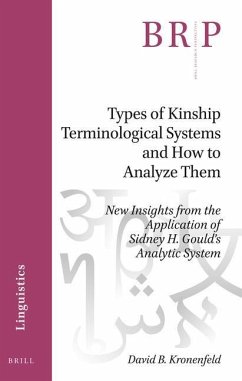The power of Gould's analytic system reveals new insights into the Fanti kin terminology. It demonstrates the effectiveness of collective cognitive constraints vs. repeated individual constraints, and the role of distinctive features in dividing relative-product-based super-class structures into actual kinterms.
Bitte wählen Sie Ihr Anliegen aus.
Rechnungen
Retourenschein anfordern
Bestellstatus
Storno






![Heads and How to Read Them [electronic Resource]: a Popular Guide to Phrenology Heads and How to Read Them [electronic Resource]: a Popular Guide to Phrenology](https://bilder.buecher.de/produkte/65/65564/65564528m.jpg)

